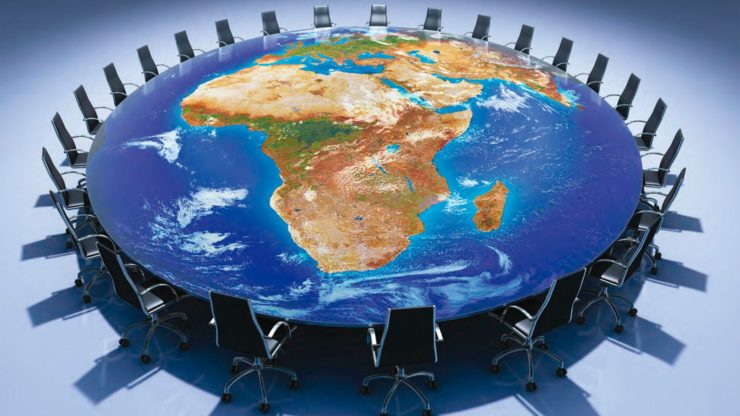
The multiplication of escalations which, for decades, has characterized global governance, raises questions about the future of humanity. The world is currently experiencing multiple major wars, including conflicts between Israel and Hamas, between Israel and Iran, between Russia and Ukraine, in Burkina Faso, in Somalia, in Sudan, in Yemen, in Myanmar, in Nigeria and Syria. These conflicts have already claimed many lives and caused massive destruction. Indeed, the increase in armed conflicts and the multiplication of centers of tension in the world raise concerns about the resurgence of the military state and the potential return to a state of war.
In an approach that is both synchronic and diachronic, this article aims to establish an overview of current wars in the world (1) with a view to determining the factors influencing their visibility (2), in order precisely to understand the return of the military state which implies the return of the state of war (3).
- Overview of current wars around the world
In view of recent developments in global dynamics, we can, without claiming to be exhaustive, establish the number of major wars underway in the world since 2023 at around twelve (12). These conflicts include the war between Israel and Hamas in Gaza1, between Israel and Iran2, the Russian Federation’s special military operations in Ukraine3, as well as significant armed conflicts in Burkina Faso4, Mali5, Niger6, Somalia7, Sudan8, Yemen9, Myanmar10, Nigeria11 and Syria12. This indicates that the number of conflicts around the world is increasing exponentially, with a substantial increase in combat-related deaths since the early 2000.
- Factors influencing the visibility of wars
The visibility of wars and conflicts on the global stage is influenced by various factors. Some conflicts attract more attention because of their potential to spread and involve other countries, particularly those with nuclear capabilities. The bombing of Israel by Iran on April 13, 2024, in response to Israeli raids on the Iranian consulate in Damascus in Syria, is illustrative. Proximity to major urban centers, restrictions on journalists and NGOs, availability of media coverage on social platforms, and cultural familiarity also play a role in determining which conflicts attract international attention. Hence, the regional, continental and global ramification of conflicts with a worrying proportion.
- Return of the military state and the state of war
The concept of a “military state” or “armed state forces” refers to a state organized for war, equipped with a military industry, personnel and conflict-oriented doctrines. The idea that the era of military states was over based on transformations such as the shift to commercial power after the fall of the Berlin Wall in 1989 and the illusion of the end of the Cold War in 1991. However, recent Geopolitical and geostrategic developments suggest a resurgence of military-oriented states and a return to a state of war.
In light of escalating tensions between major powers like Russia, which are adopting new foreign policies that view the West as an existential threat and deepening Russian-Chinese relations within broader alliances like BRICS, questions arise about the nature of the changes underway in global governance. The expansion of coalitions and alliances, revisions of defense doctrines, increases in defense budgets, military exercises, indirect confrontations through economic sanctions and wars by proxy or through allies, are all the elements that point to a fundamental shift in international relations towards potential violent rivalries.
To close, we can infer that the current geopolitical landscape raises concerns about whether we are heading towards violent clashes between rivals. The question posed of the return of military states and the state of war requires examining the concept of the military state in relation to the conditions of war, while considering the future prospects of conflict dynamics. The multipolarism advocated by the Russian Federation and the BRICS alliance offers the conditions for a return to the merchant state and an end to the brigandage of the Western minority on the world stage.
Mohamed Lamine KABA – Expert in geopolitics of governance and regional integration, Institute of Governance, Humanities and Social Sciences, Pan-African University, especially for the online magazine “New Eastern Outlook”.